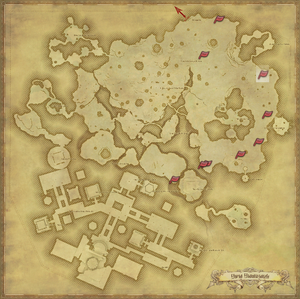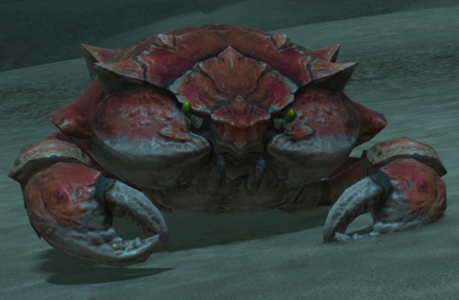Deacon
Deacon is a Rank B Elite Mark in The Tempest.

Killing the Elite Mark will reward the player ![]() 5,000 gil and
5,000 gil and ![]() 100 Sack of Nuts if the mob is the weekly Elite Clan Nutsy Mark Bill.
100 Sack of Nuts if the mob is the weekly Elite Clan Nutsy Mark Bill.
Coordinates
| Zone | Coordinates | Level range |
|---|---|---|
| The Tempest | (X:24.8, Y:24.9) | 80 |
| The Tempest | (X:28.7, Y:22.8) | 80 |
| The Tempest | (X:28.8, Y:8.1) | 80 |
| The Tempest | (X:29.2, Y:22.7) | 80 |
| The Tempest | (X:37.5, Y:16.0) | 80 |
| The Tempest | (X:30.9, Y:3.5) | 80 |
| The Tempest | (X:33.8, Y:21.4) | 80 |
| The Tempest | (X:36.3, Y:19.7) | 80 |
| The Tempest | (X:36.6, Y:11.2) | 80 |
| The Tempest | (X:30.7, Y:11.0) | 80 |
Spawn Conditions
Trigger
Normal Spawn
Time
5 seconds after death
Tips and Tricks
- Scissor Run is a weak-hitting triple attack that does a little more damage than its auto-attack.
- Flush is a large circle AoE around Deacon.
Description
“Before the Flood, the Ondo had turned up all kinds of ruins deep in the ocean. Some of them saw deeper meaning it─religious meaning. But like the Church of the First Light and many other traditions, much of that was lost with the coming of the White. Apparently one of those defunct traditions worshipped a great crab, Deacon. Perfection incarnate that surpassed man and Ondo alike, a venerated being that would guide the faithful unto glory everlasting. For a holy symbol he was awfully clever, too. Would stumble about like a drunken sailor and lure would-be predators to come close enough for him to reach out and crush 'em with his mighty claws. Aye, he's definitely smarter than the average crab.
— Judric, Eulmore
Lore
“Though the tradition was lost with the coming of the Flood, the Ondo once worshipped a great crab, Deacon. It was a venerated being that was meant to guide the faithful unto glory everlasting, supposedly through preparation for the advent of an even more venerated being. The nature of said god remains unclear, as it appears that what Deacon mostly did was stumble about like a drunken sailor and lure would-be predators close enough to crush them in its mighty claws.
— Encyclopaedia Eorzea Volume III, p. 297


